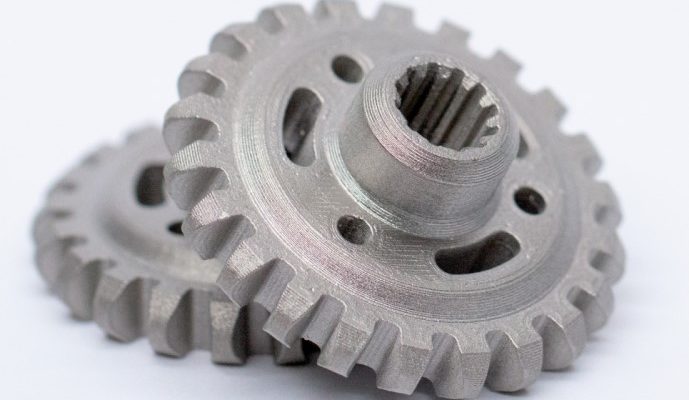With Nickel Alloy Inconel 625 (IN625), the Studio System 2, a turnkey metal 3D printing platform has now a range of eight materials available. This office-friendly metal 3D printer delivers more material flexibility than any other metal extrusion 3D printing system on the market for printing high-performance metal parts in low volumes for pre-production and end-use applications.
IN625 for High-Strength, High-Performance Flexibility
IN625 is a high-performance nickel alloy known for high levels of strength, temperature and corrosion resistance. It is a popular material choice for applications in industries such as aerospace, chemical processing, and offshore energy.
However, the strength of IN625 is also what makes it a difficult and expensive material to machine into complex shapes. The process typically requires a skilled machinist and special CNC cutting tools, strategies and coolants to shape. It’s not uncommon for cutting tools to be broken or deformed when milling Inconel stock or for the material to deform when the outer layer hardens too quickly in response to machining.
Producing IN625 parts with the Studio System 2 is fast, safe and affordable. Users can directly print and sinter final, end-use parts or near-net shape parts that can be precision machined for key surfaces with ease.
Besides IN625, Studio System can now print titanium alloy Ti6Al4V (Ti64), copper, 4140, tool steels (H13 and D2), and two stainless steels (17-4 PH and 316L).
“The Studio System 2, which features our streamlined and easy-to-use two-step process, remains the most flexible metal 3D printer in its class,” said Ric Fulop, Founder and CEO of Desktop Metal. “It’s never been more important for manufacturers to have the agility of on-site, on-demand metal production, and the Studio System is a perfect gateway into metal 3D printing for production. Adding IN625 to the portfolio only amplifies the flexibility of this proven system.”
Studio System 2 is an office-friendly metal additive manufacturing system that leverages Desktop Metal’s proprietary Bound Metal Deposition™ (BMD) technology to produce parts. The easy, two-step process provides a nearly hands-free experience while eliminating loose powders and dangerous lasers commonly associated with metal 3D printing. It consists of a printer and furnace, and it simplifies in-house low-volume production of a wide range of complex geometries with outstanding surface finish and high-performance mechanical properties.
